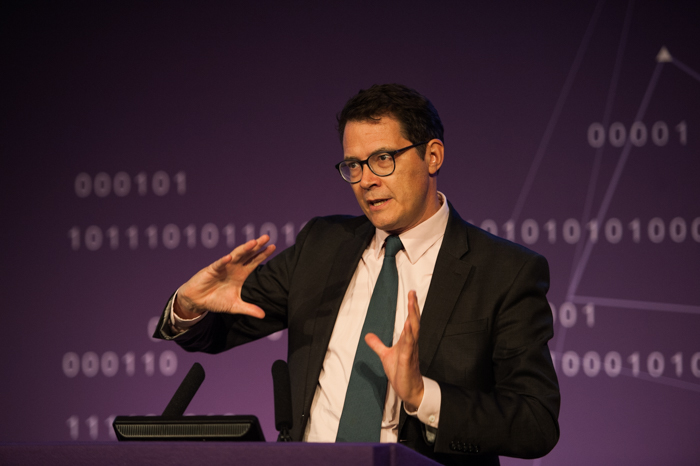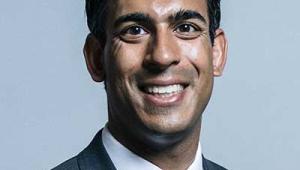
Carole Cadwalladr addresses the CIPFA conference Photo: Rafa Bastos
Guardian and Observer journalist Carole Cadwalladr advised delegates the public sector should learn from the Cambridge Analytica scandal - the story she broke earlier this year.
She won the coveted Orwell journalism last month for her investigation.
“We must learn the lesson that Cambridge Analytica is teaching us,” she told the conference in Bournemouth today, in a session called Public expectations in the age of social media.
“We know that if we take multiple data sets and overlay them, you totally de-anonymise people.”
Cadwalladr explained when you have people’s data, including their purchase history, voting records - and “everything” – overlapped with their health data, there could be “brilliant and wonderful things” drawn out.
 “But think of the abuses and knowledge of their data could be used against them”, she warned the Bournemouth conference.
“But think of the abuses and knowledge of their data could be used against them”, she warned the Bournemouth conference.
The Cambridge Analytica scandal revealed how the data analytics firm had harvested people’s Facebook data without permission, to build up a system that could influence the US election and the Brexit referendum.
Political journalist Andrew Rawnsley, who chaired the session, highlighted that the public sector already holds “a huge” data set but does not exploit it in way the private companies do.
The NHS, for example, has an anonymous data set, which could be valuable in improving health if used, he said.
Although, Cadwalladr added: “There is no such thing as anonymous data.”
Ben Page, chief executive of Ipsos MORI [pictured above right], who also spoke at the session, disagreed that there was no anonymous data.
He also said that there is “real anxiety” among the public when it comes to their personal data, such as health records, being shared with third parties.
“The challenge in this area is that Facebook has only been around for about 15 years and we are just beginning to understand how to deal with this stuff.
“This is going to be a massive area for debate and scrutiny for the rest of this century.”











